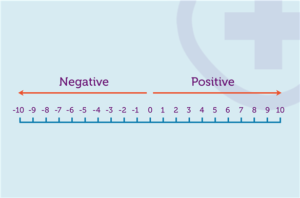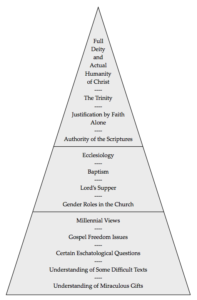It has been widely acknowledged that the attention span of adults has been shrinking for decades. According to Professor Gloria Mark (University of California, Irvine), back in 2004, the average adult attention span was approximately two and a half minutes. Eight years later, it was only 75 seconds, and now, in the last four to six years, it is down to 47 seconds.[1] And there is some research to indicate that the average attention span may be as low as 8.25 seconds, which is shorter than that of a goldfish.[2]
These findings about our apparent decreasing attention spans led me to ruminate about the science and art of preaching. As someone who started preaching more than 25 years ago and who has been the main preacher at my church for nearly 20 years, I was immediately struck when a church member sent me an article titled, “Pope Francis: Keep Your Homilies Short or ‘People Will Fall Asleep.’ ”[3]
Courtney Mares, the author of the article, reports that Pope Francis is once again urging his priests to keep their homilies short so that the people will not fall asleep. Of course, we have the biblical example of Eutychus falling asleep because Paul’s talk lasted longer than he could (see Acts 20:7–9).
But we should not be too hard on Eutychus, according to the text, Paul “prolonged his speech until midnight,” and then he “talked still longer.” As an early-to-bed kind of guy myself, I might have also fallen asleep at a sermon that went well past midnight and then the speaker “talked still longer.”
Pope Francis, on the other hand, is not telling his priests to start their sermons at a reasonable hour, he is telling them to keep their homilies to “no longer than eight minutes” so that they will not have another Eutychus on their hands. In 2018, Pope Francis told his priests to keep their homilies to 10 minutes, and now, six years later, that time has been slashed by 20%.
But what are we, as Protestants, to think about the length of our sermons? Personally, I learned how to preach in German, and I preached my first 10–12 sermons in German before I ever preached in my native English tongue, and at the beginning, my German was not proficient enough to be extemporaneous, so I had to carefully manuscript my sermons and then ferociously stick to the manuscript. After one of my sermons, which lasted about 30–35 minutes, an older couple, who had been brought up in the former Eastern Bloc countries, told me that they enjoyed my sermon, but that it was too short.
So, what is the magic “perfect” length of a sermon? I once heard a well-known preacher quip to a room full of preachers that it was our job to finish before our congregation did. His point was unmistakable.
Let me humbly offer a few pieces of advice with respect to sermon length.
First, it is the preacher’s primary duty to “preach the word” (2 Tim 4:2). We are to be ready in season and out of season, and if we are to preach the word, then the first rule is that we need to take as much time as the text demands. I am not suggesting that our sermons should be a running commentary where we comment on every word and every verb conjugation, but we do need to remember that our job is not complete until we have faithfully preached the text so that the meaning and application of the text has become plain to our hearers.
Second, the length of our preaching requires humility. Some of my favorite preachers are able to preach sermons that last an hour or more, and even then, I feel as if only a few minutes have passed by. But just because some brothers are naturally gifted public speakers who are able to grab our attention and hold it for lengthy periods of time, that does not mean that all of us are equally gifted public speakers. Faithfully preaching the text does not require sermons that last an hour or longer. It is very possible to faithfully handle the word of God and only preach for 25–30 minutes. Brother, know thyself.
Third, the length of our preaching requires knowing one’s audience. If a guest preacher fills the pulpit of a man who regularly preaches for an hour or more, then it is very likely that the members of that congregation have been trained to expect and enjoy longer sermons, so the guest preacher may feel emboldened to preach a longer than normal sermon. But if a preacher is coming straight out of seminary to a small country church where the former preacher only preached for 25–30 minutes every Sunday, then it could be disastrous, both for the new preacher and for the congregation, for him to start off by preaching longer sermons like his preaching heroes. We need to know our audience.
Finally, as a way to measure this in our own context, we should make time to allow for our congregation to give us both positive and negative feedback on our sermons. This type of feedback could come through a formal service review, or it could come through informal, casual conversations after the service or over lunch, and this feedback, if we allow it, can sharpen us and make us better preachers.
Do our sermons need to be shorter? For some of us, the answer to that question may be “yes,” but please do not shorten them to 8–10 minutes. Sermonettes produce Christian-ettes! We need to make sure to feed our people more than hors d’oeuvres. They need a meal.
[1] https://www.apa.org/news/podcasts/speaking-of-psychology/attention-spans accessed on December 10, 2024
[2] https://www.sambarecovery.com/rehab-blog/average-human-attention-span-statistics accessed on December 10, 2024. NOTE: These researchers were measuring “attention span” by different criteria, but the overall point is that our attention span is decreasing.
[3] https://www.catholicnewsagency.com/news/257967/pope-francis-keep-your-homilies-short-or-people-will-fall-asleep accessed on December 10, 2024.






